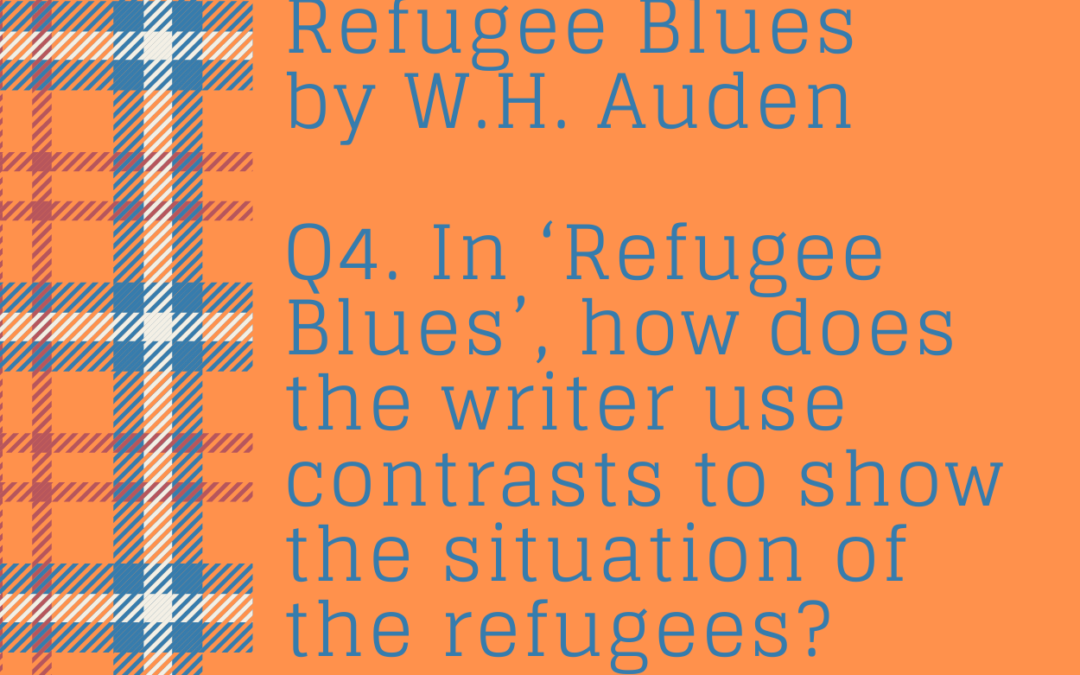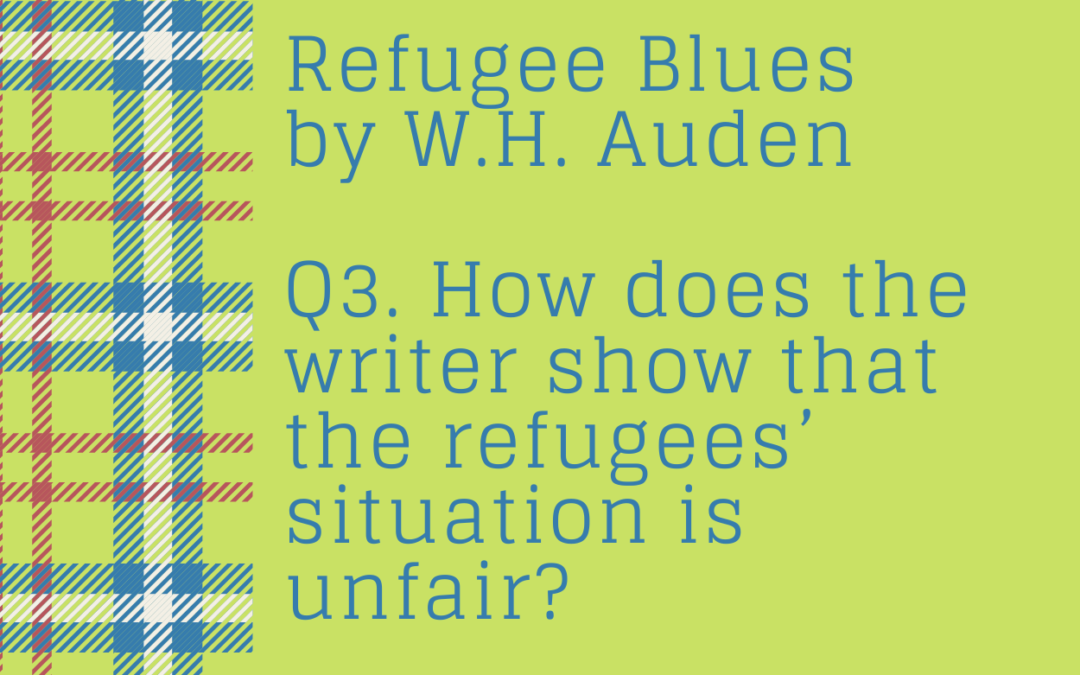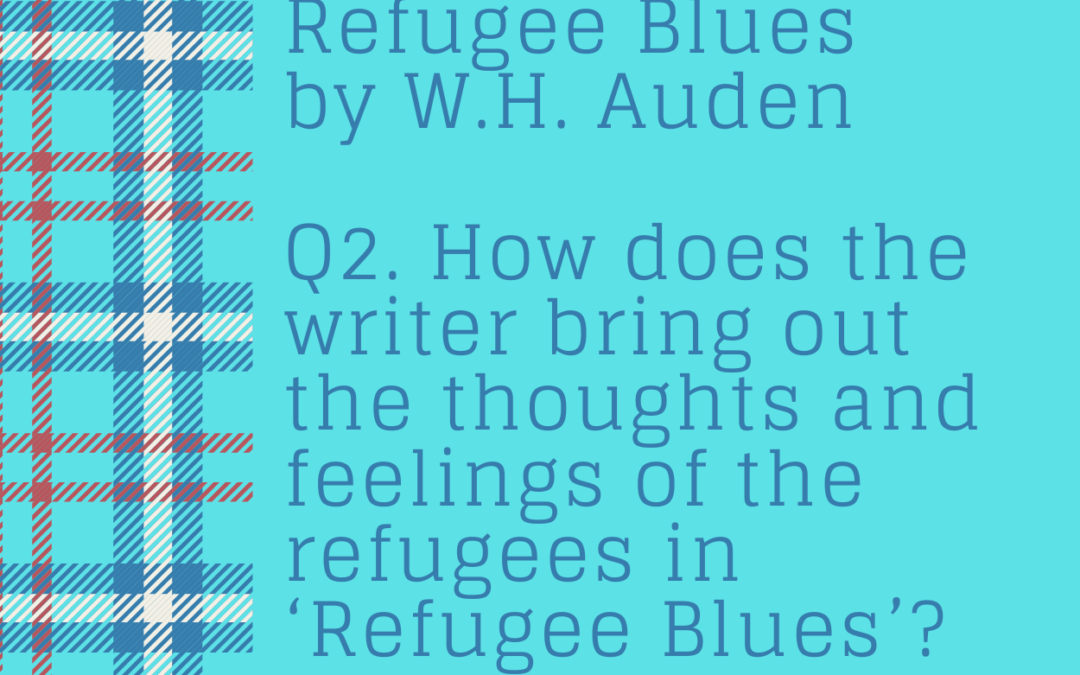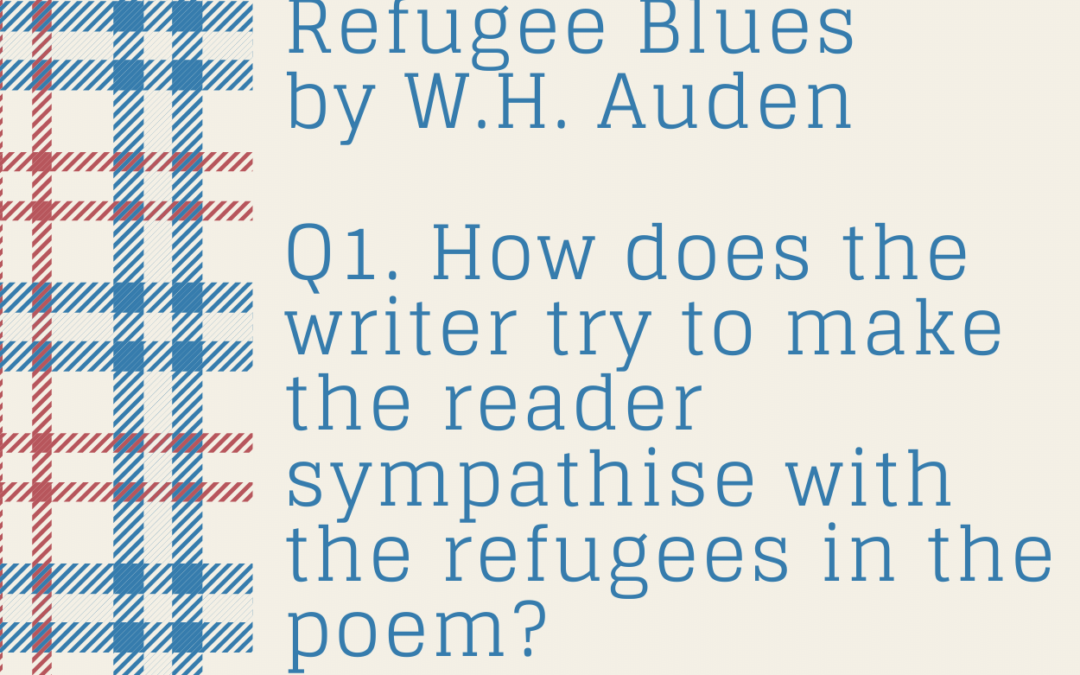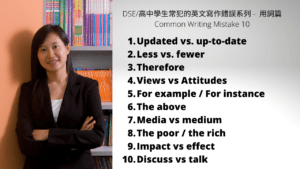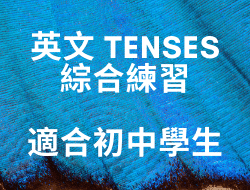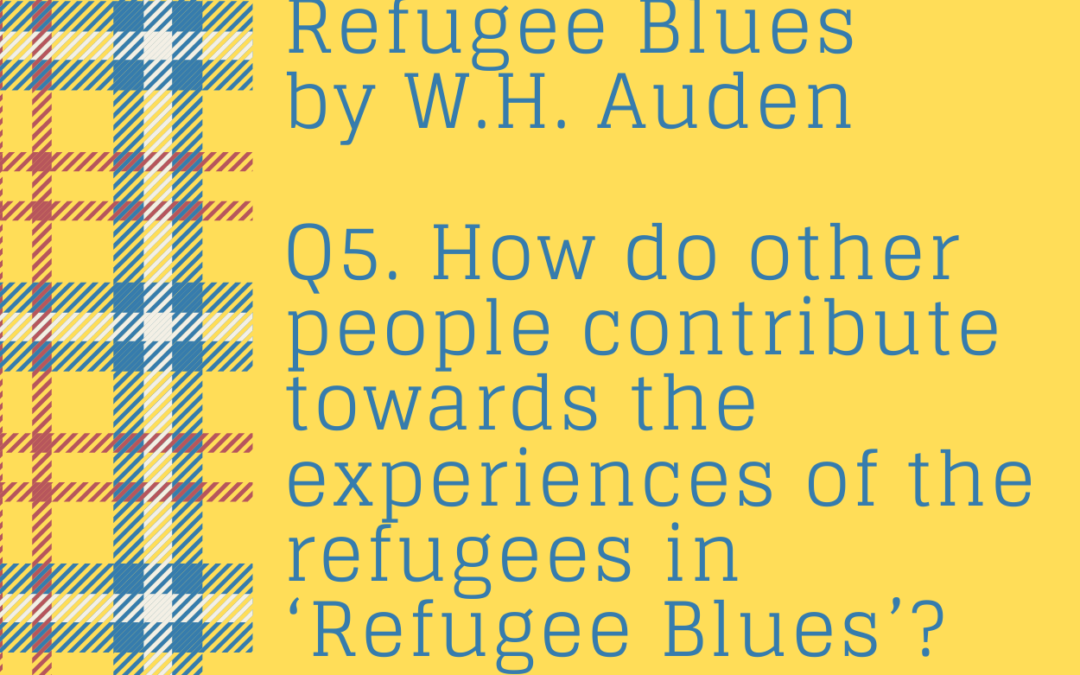
IGCSE Set 2 Refugee Blues by W.H Auden Model Essays Question 05
Edexcel English IGCSE: Refugee Blues Model Essays
Q5. How do other people contribute towards the experiences of the refugees in ‘Refugee Blues’?
In your answer, you should think about:
- the refugees’ experiences in their home country;
- the reactions of other people in the refugees’ new country;
- the writer’s use of language techniques.
You should refer closely to the poem to support your answer. You may use brief quotations.
Edexcel English IGCSE Model Essay by an Expert
The tragic circumstances of the refugees in this poem seem even more unjust because they are not to blame for any of their misfortunes. They were chased from their home for being Jewish, and are still unwelcome in their new country.
The refugees are victims of the Nazi regime in Germany, which is why they have fled to a safer country. The trauma of this experience is captured in the narrator’s inability to escape the memories. The sound of “thunder rumbling” reminds him of Hitler’s voice; the assonance in this description creates a sinister tone. The refugees also feel personally victimised by Hitler’s regime: “We were in his mind, my dear”. Particularly with the moving address to his loved one, this line suggests that Hitler was thinking specifically of these two people when he demanded the extermination of all Jews. The memory of the soldiers hunting for Jews is described in similarly personal terms: “Looking for you and me”. These personal references highlight the plight of individual victims of the Nazis.
Once they arrive in their new country, the refugees are still made to feel unwelcome by people supposed to help them. The consul “banged the table”, showing that he is angry and frustrated by them. In fact it is he who is being frustratingly illogical, by declaring them “officially dead” because they don’t have the correct paperwork. There is cruel irony that they have escaped death in their own country, just to be declared ‘dead’ in their new country, because of the illogical bureaucratic system. A committee is similarly unhelpful: “they offered me a chair”. This is a play on words: on one level, it means that they simply asked him to sit down; however, it also reflects the fact that they were offering him something entirely useless. They can provide him with somewhere to sit, but not somewhere to live.
The existing citizens of the new country are also very unwelcoming to the refugees, contributing to their experiences of rejection. The poem opens with the hyperbolic observation that “this city has ten million souls”, and yet none of them are able to offer a place for the refugees. By using the word “souls” instead of “people”, the writer gives the image a religious element, making it more sad and unreasonable that people are so uncharitable. Similarly, a public meeting shows the hostile reception of the refugees. Someone accuses them of wanting to “steal our daily bread”, suggesting that the refugees are less deserving of food rations, just because they were not born in that place.
The refugees are in this new place through no real choice of their own. Nonetheless, they are continually rejected and victimised by the residents of the supposed city of refuge.
Students also browsed:
